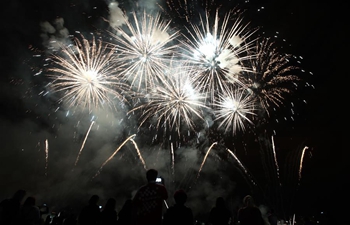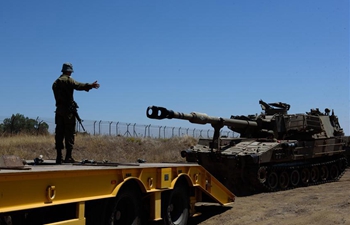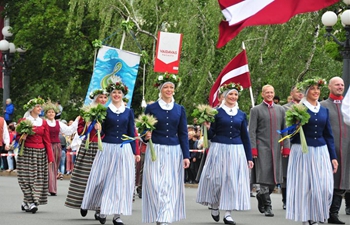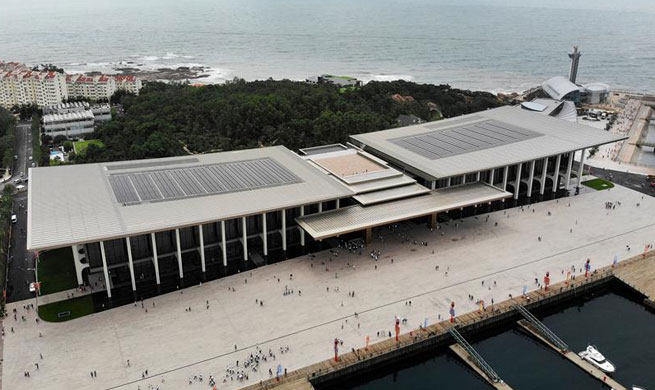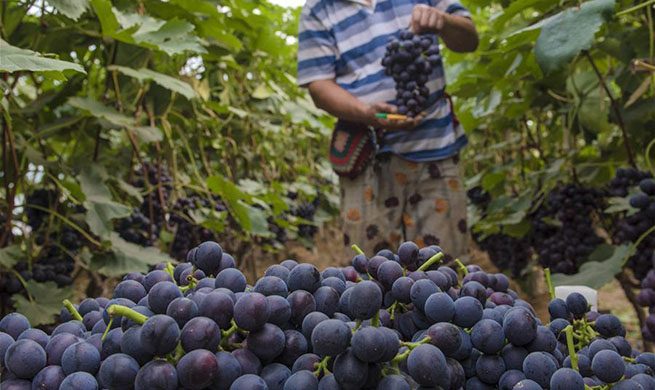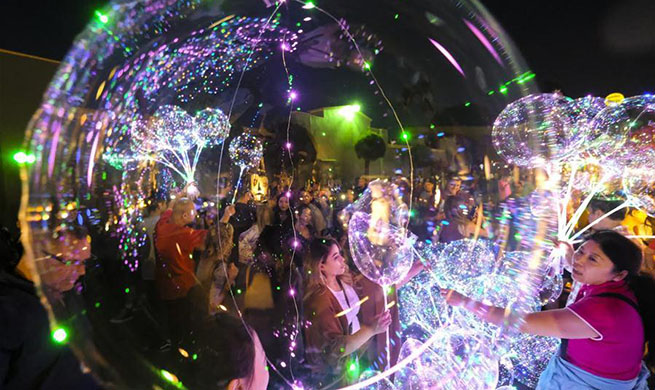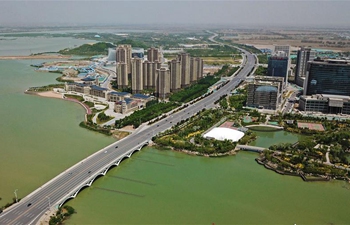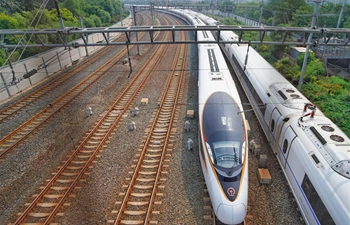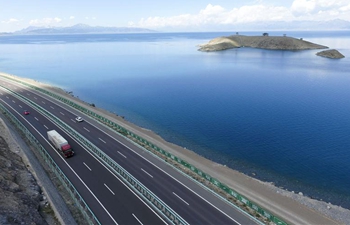by Alessandra Cardone
ROME, July 2 (Xinhua) -- Italian authorities and civic groups on Monday welcomed the official inscription of the industrial city of Ivrea on the list of UNESCO's World Heritage Sites.
The decision had been announced on Sunday by the UNESCO World Heritage Committee gathering in Bahrain from June 24 to July 4.
Ivrea was added to the list along with other sites around the world, including China's Mount Fanjingshan and the ancient caliphate city of Medina Azahara in Spain.
The northwest Italian city thus joined another 53 cultural and historic sites across Italy named as World Heritage Sites in the last decades.
"This is a recognition of the humanistic concept of work developed by Adriano Olivetti through the so-called Community Movement, in which the economic, social, and cultural well-being of employees is seen as an integral part of the production process," Italian Culture Minister Alberto Bonisoli said in a statement.
The "utmost excitement and happiness" was expressed by Ivrea's newly elected mayor Stefano Sertoli in an e-mailed comment to Xinhua.
The mayor stressed the crucial role played by his predecessors, previous administrations, and local citizens closely involved in the candidacy procedure for years.
"My gratitude to all of them for this absolutely historic result," Sertoli wrote.
Located in northwest Piedmont region, Ivrea was developed as an industrial city of the 20th century according to the project of pioneer industrialist Adriano Olivetti, who would transform a small typewriter and calculator company (inherited by his father) into a global company.
The industrial city model comprised production units, administrative structures, residential buildings, and social services buildings.
"Designed by leading Italian urban planners and architects mostly between 1930 and the 1960s, this architectural ensemble reflects the ideas of the Community Movement," the UNESCO Committee explained in its motivations.
"A model social project, Ivrea expresses a modern vision of the relationship between industrial production and architecture," it added.
From the Italian perspective, the announcement was also seen as a due tribute to late Laura Olivetti, one of the children of the entrepreneur, and a strong promoter of the candidacy.
The idea was originally elaborated in 2008, and inserted in the country's tentative list -- including all sites that might be considered as UNESCO cultural or natural heritage sites -- in 2002.
The official candidacy procedure started in January 2017, with Ivrea municipality, the Olivetti Foundation, Turin Metropolitan City, and Italy's Ministry of Cultural Activities among the major promoters.
"We are deeply touched, and we thank all of those who have supported us in these long years of work," the Olivetti Foundation wrote on its website.
"We dedicate this victory to Laura Olivetti, a strenuous supporter of the Olivetti culture."
Today, Ivrea is a community of about 23,600 people in the province of Turin, whose post-industrial economy has been mainly devoted to the tertiary sector.
In a statement after the enlisting, the municipality proudly said the industrial city conceived by Adriano Olivetti represented "a distinctive example of social and architectural experimentation over industrial processes".
"It was an innovative experience of industrial production at global level, which took particularly care of the well-being of local communities," it added.


